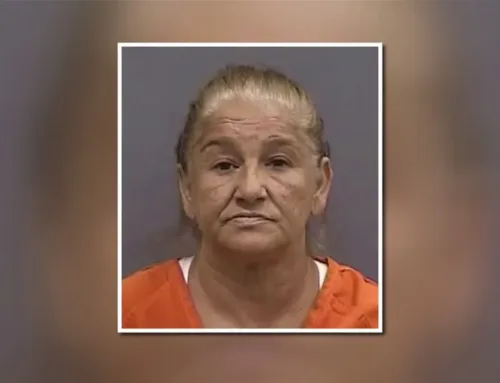Ian Young
September 14, 2021
-South China Morning Post
Canada’s Conservative Party has China in its election crosshairs amid the worst period of diplomatic relations in recent history – prompting a strong pushback from Beijing’s ambassador and state media, which lambasted the opposition party’s “hostile” platform for catering to “toxic” anti-China sentiment.
The platform would “invite counterstrikes” if a Conservative government put its China policies into effect, the state-run Global Times reported on Wednesday.
But despite the rhetoric on either side of the Pacific, Canadian political observers told the South China Morning Post that there would be little room for either the Tories or the ruling Liberal Party to chart their own course on China, whichever wins the September 20 election. Ottawa would remain beholden to how the broader China-US relationship played out, they said.
China-Canada ties are already at an abysmal low, dragged down by the arrest of Huawei Technologies Co executive Meng Wanzhou in Vancouver in December 2018, and by the subsequent arrest of Canadians Michael Spavor and Michael Kovrig in China.
Last month, the Conservatives, led by Erin O’Toole, released an election platform that took a strikingly hardline stance towards Beijing, saying the party would reduce Canada’s overall reliance on China, ban Huawei from 5G networks and withdraw from the Chinese-led Asian Infrastructure Investment Bank.
“We must stand up to the Communist government of China,” said the platform, adding that the “quarrel” was not with the Chinese people.
The platform was peppered with dozens of critical references to China, on subjects ranging from Taiwan, trade, the environment and territorial claims in the Arctic.
By contrast, the Liberal platform mentions China just once, saying the party would to continue to partner with allies to “respond to illegal and unacceptable behaviour by authoritarian states, including China, Russia, and Iran”.
The Conservatives are in a tight race with the centre-left Liberals of Prime Minister Justin Trudeau, followed by the left-leaning New Democratic Party, led by Jagmeet Singh, whose support allowed the Liberals to retain power as a minority government after the last election in 2019.
The diplomatic custom of non-interference in domestic politics took a back seat on August 25, when ambassador Cong Peiwu told The Hill Times political news outlet that Beijing opposed any politician “smearing” China.
Hill Times asked if that referred to the Tories, Cong reportedly said: “Some people put their personal political interests above the interests of the Canadian people as a whole and hype issues related to China.”
On Wednesday, the English-language Global Times echoed those remarks by reporting that “hyping the China topic shows that the Canadian Conservative party has very few cards to play, and lacks good policies to appeal to voters”.
It attributed comments about the Tory platform to “Chinese observers”, who included Li Haidong, a professor at the China Foreign Affairs University, an institution for Chinese diplomats run by the foreign ministry.
“[If] the Canadian government puts those hawkish words into action, it will invite counterstrikes from China, and Ottawa is the one to suffer,” the report said.
Canadian observers of the fractious bilateral relationship said that regardless of the Conservative platform and the election’s outcome, Ottawa would likely remain bound by how the China-US relationship developed.
“We’re the mouse caught between the elephant and the dragon and yes, the broader relationship between Washington and Beijing determines almost everything,” said University of British Columbia (UBC) political science professor Michael Byers.
Byers said that compared to the early years of Trudeau’s run as prime minister, which began in 2015, his Liberals had “substantially hardened their statements on China”.
That left the Conservatives trying to stake out a tougher position to differentiate themselves, having correctly read the mood of the Canadian electorate towards Beijing, he said. In May, an Angus Reid poll found only 14 per cent of Canadians held a favourable view of China, down from 48 per cent in 2017.
“Anti-China sentiment in Canada is very widespread at the moment,” Byers said. “The Conservatives, they know where the Canadian public is, in terms of its opinion on China. They’d like to make this an election issue.
“But the Conservatives have the luxury of not being in government. The Liberals can’t go too hard because they have a moral responsibility, as the government of Canada, towards the two Michaels.”
Kovrig and Spavor were put on trial for espionage this year. Spavor, a businessman who forged ties with North Korean leader Kim Jong-un, was convicted and sentenced to 11 years’ jail. The outcome of the trial of Kovrig, a former Canadian diplomat, has not been announced.
Meng awaits a ruling by a Canadian judge whether she can be sent to the US to face trial for fraud. If her committal for extradition is approved, the final decision on whether to actually surrender Meng to the Americans will rest with the Canadian minister of justice.
We are in a period of an accelerating geopolitical competition between great powers, and the space for a middle power like Canada with respect to China has massively shrunk
Yves Tiberghien, a political science professor at UBC and a senior fellow at the University of Alberta’s China Institute, agreed that Canada’s stance towards China was “contingent on developments in the US-China relationship”.
“The accelerating tit-for-tat dynamic between the US and China has huge implications for everyone else and completely sets the parameters on every topic,” he said.
There was consequently little room for Canada to act alone, Tiberghien said. “There is no low-hanging fruit to pick on our own. We are in a period of an accelerating geopolitical competition between great powers, and the space for a middle power like Canada with respect to China has massively shrunk.”
Tiberghien predicted that the “authoritarian tightening in Beijing has not run its full course”, while Byers said the hardening Chinese stance was setting the agenda for both Conservatives and Liberals.
“It’s not that one or the other Canadian party is right or wrong in its approach, it’s that we’re dealing with a bare-knuckle Chinese approach to diplomacy,” Byers said.
As for Cong’s remarks, Byers suggested the ambassador “needs to spend more time in Canada”.
“He doesn’t understand the very different positions of a prime minister versus an opposition leader who is campaigning for an election. To equate the situations of Justin Trudeau and Erin O’Toole is a serious mistake,” he said.




